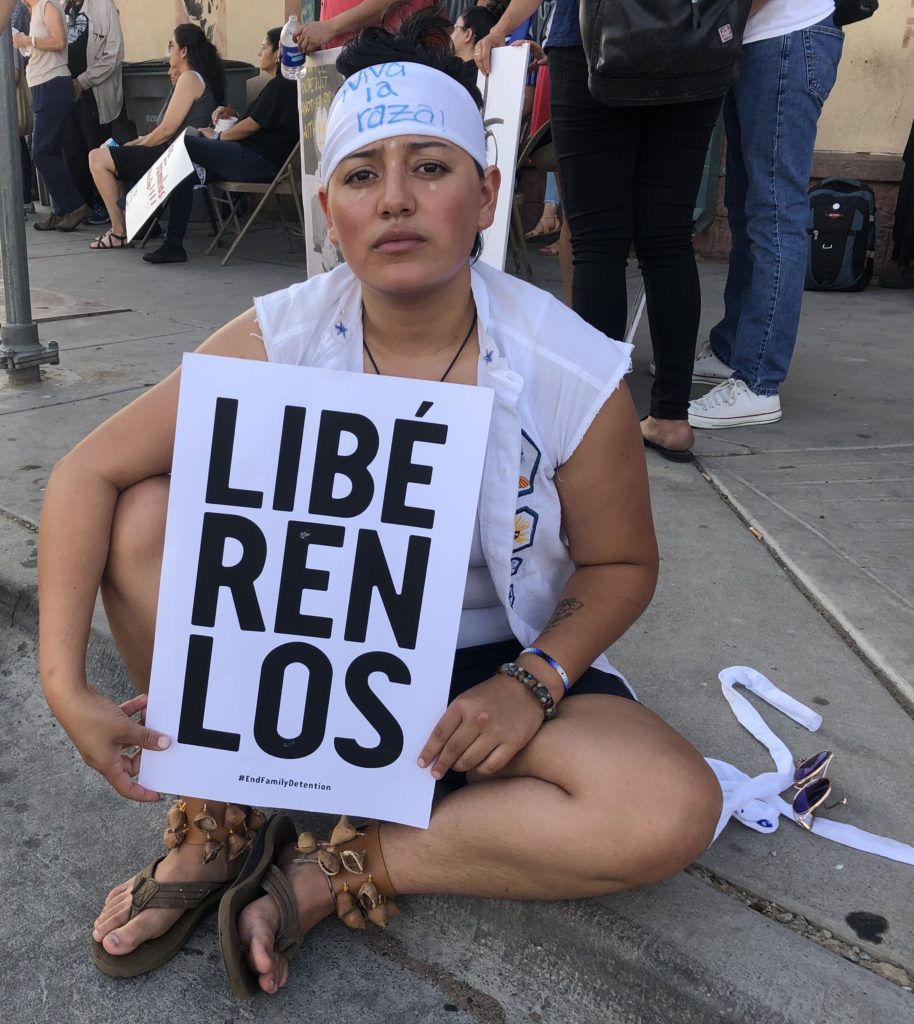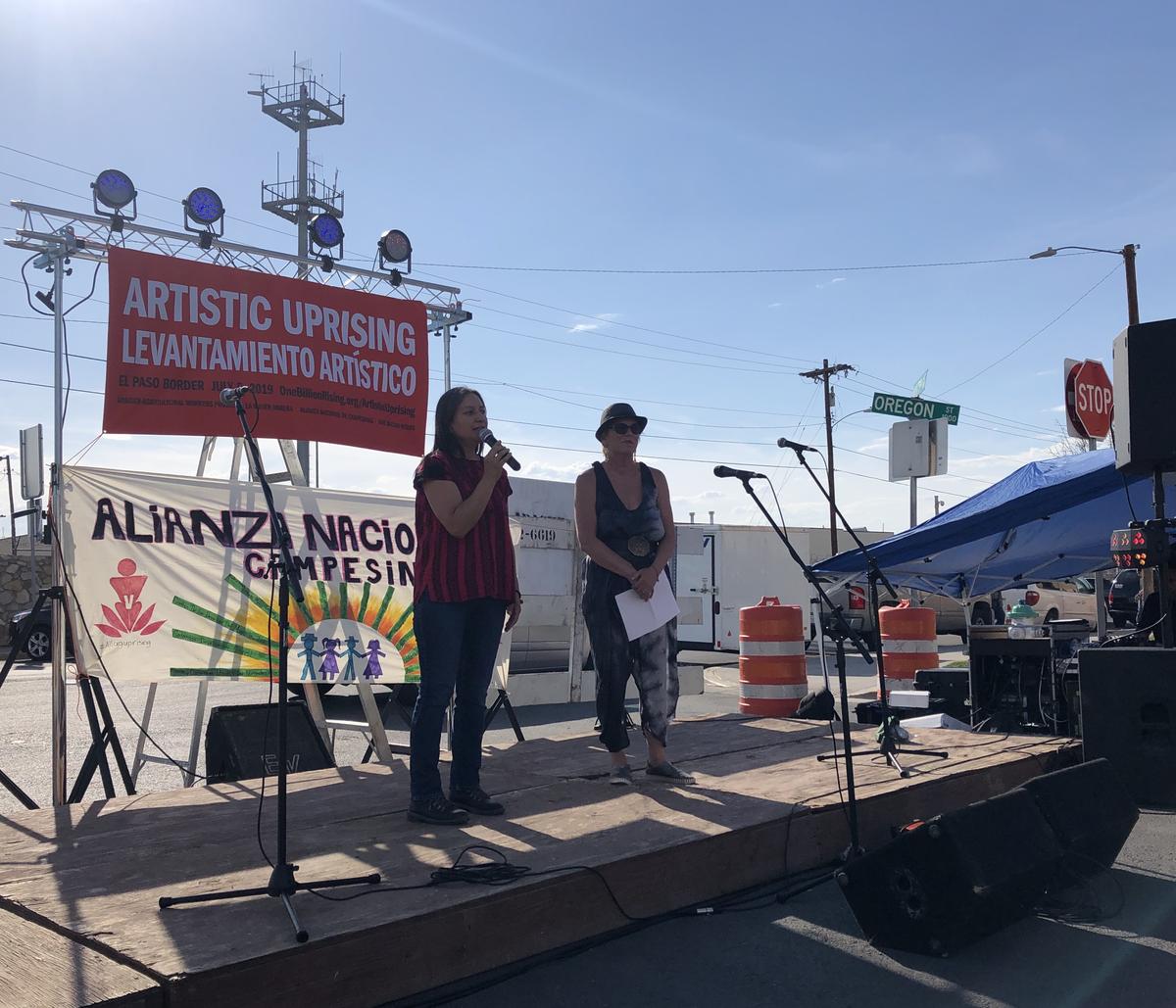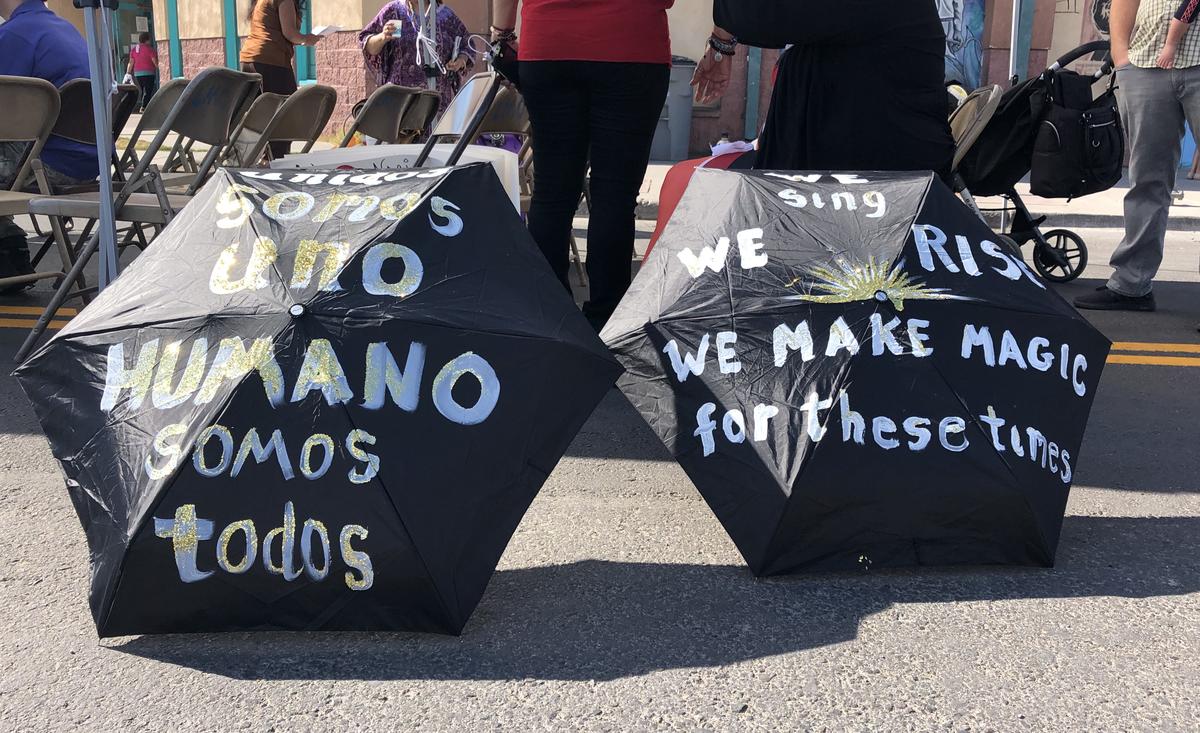Originally Published in Texas Public Radio:
https://www.tpr.org/post/never-again-now-artists-protest-conditions-us-mexico-border

Bianca Acosta came to the U.S. from Mexico as a teenager. “Art itself can cross the borders,” she says. “An artistic uprising really makes an impact.”
CREDIT: MALLORY FALK
Artists from around the country gathered in El Paso Friday night for what they called an “artistic uprising” at the U.S.-Mexico border. With an international bridge as their backdrop, they sang, played music, and recited poetry expressing love for migrants and denouncing family separation and child detention.
The setting was dramatic. Just beyond the stage — a small, raised platform — stood the El Paso Del Norte Processing Center. In May, a report from the Department of Homeland Security’s Office of Inspector General warned of dangerous overcrowding at the facility. At one point, 900 migrants were held in a space designed for 125.
When organizer Lorena Andrade took the stage to kick off the event, she gestured to the processing center. “This is where our people are held,” she said. “This is where this whole, horrible process begins. And we are here to be loud with our poems, with our songs, with our danza, with our drums. With everything that is in us, we are going to demand of these people that they let our people go.”
Andrade directs La Mujer Obrera, a women’s community organizing group in El Paso. She put on the event with the playwright Eve Ensler, who founded the international anti-violence campaign One Billion Rising. Border Agricultural Workers Project and Alianza Nacional de Campesinas also helped out.
“I think many people in this country need to express what they’re feeling about what we’re witnessing on our borders and in detention centers,” Ensler said. She put out a call to artists all over the country: “Let’s join forces and rise up and say not in our name. Not in our conscience. Not in our witness. We do not accept.”

Lorena Andade and Eve Ensler organized the artistic uprising.
CREDIT MALLOY FALK
Within a week, Ensler said, about 30 artists signed up to perform. “I think it reflects the absolute heartbreak and anger and outrage people feel that our government is behaving the way it is.”
Andrade said it made sense to host the event in El Paso. “The effects of immigration policies, this is where we feel it first,” she said. “It’s almost amplified. If you want to have clarity about what’s going on and you need to erase any doubt of what’s going on, if you want to see for yourself what the truth is, you come here to this part of the border.”
Alix Garcia was with the spoken word and hip hop duo Climbing PoeTree. She traveled from New York to perform.
“I’m an immigrant,” she said. “I was without status for a long time. I know a lot of this struggle.”
Garcia took the stage around dusk, as clouds swept in and provided relief from the scorching desert sun. She performed alongside two friends and fellow musicians from Portland, Oregon. She explained that the group chose pieces that would be “soothing and healing, but at the same time informative and connective.”
“When talking about these very hard issues, we try to take spins on it,” Garcia said. “Look at the positive. Look at how we’re winning. Look at how we’re surviving, how we’re thriving, despite them…Creativity is the antidote to destruction.”
Tonya Abernathy, who shared the stage with Garcia, said she can’t stand by while others are being harmed.
“A piece that I can offer is my voice,” she said, “and I’m committed to sing out in love against this injustice until it stops.”
A large crowd gathered to watch the performances and participate in the protest. Bianca Acosta traveled from Colorado. She grew up in Mexico and crossed the border “somewhere near here” as a teenager, fifteen years ago. She hadn’t been back to the region since but felt it was important to show up for this event.

Umbrellas provided shade and political messages in the hundred degree heat.
CREDIT MALLORY FALK
“For me, being here is so I don’t forget I was one of those people,” she said.
Acosta added that it was hard being back and confronting how her story might have played out if she tried to cross the border today.
“If I had done that right now — what’s going on at this moment — things would be different,” she said.
At the end of the night, a group of artists and activists marched to the base of the Paso del Norte International Bridge. As Customs and Border Protection officers looked on from a distance, the marchers chanted phrases like “never again is now” and “no U.S. violence in our name, immigrants are not to blame.”
Before dispersing, they formed a circle, held hands and called out their wishes for migrants: freedom, dignity, love.